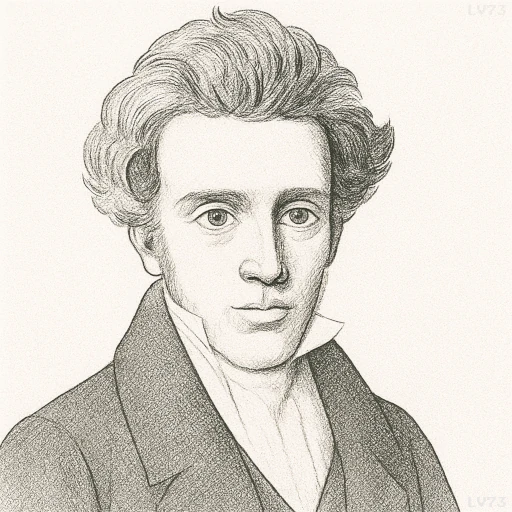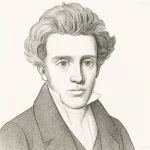“I begin with the principle that all men are bores. Surely no one will prove himself so great a bore as to contradict me in this.”

- May 5, 1813 – November 11, 1855
- Danish
- Philosopher, Theologian, Poet, Father of Existentialism
table of contents
Quote
“I begin with the principle that all men are bores. Surely no one will prove himself so great a bore as to contradict me in this.”
Explanation
This quote showcases Kierkegaard’s wry, ironic style and his use of paradox to make a deeper philosophical point. On the surface, it appears as a humorous, even cynical, observation—that everyone is a bore, and that even disagreeing with this assertion would only confirm it. But beneath the irony lies a reflection on human self-deception, conformity, and the struggle for authenticity. To be a “bore” here may mean to be unreflective, predictable, or conventional, traits Kierkegaard often critiqued in society.
In the 19th-century cultural and intellectual milieu of Kierkegaard’s Denmark, he saw many individuals living inauthentic, socially conditioned lives, adopting beliefs and behaviors not from personal conviction but from habit or fear of judgment. The quote plays on this dynamic, suggesting that people are dull not by nature, but by avoiding the risk of true individuality. Even the impulse to refute such a sweeping judgment may, in his view, stem from a need to defend ego rather than seek truth.
In contemporary life, the quote can be read as a critique of groupthink, superficiality, or performative identity. It challenges us to ask whether we are simply playing roles or living with inner depth and originality. Kierkegaard’s irony reminds us that to escape being a “bore”, one must resist both empty rebellion and passive conformity—and instead strive for genuine selfhood and courageous thought, even at the cost of standing alone.
Would you like to share your impressions or related stories about this quote in the comments section?

